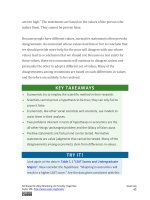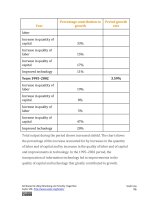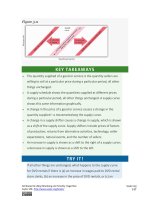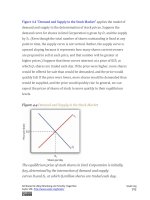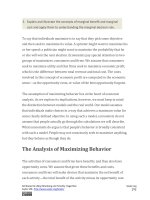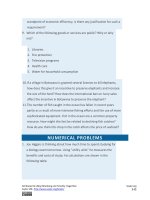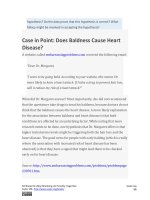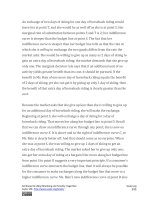Authors libby rittenberg 45
Bạn đang xem bản rút gọn của tài liệu. Xem và tải ngay bản đầy đủ của tài liệu tại đây (426.88 KB, 1 trang )
are too high.” The statements are based on the values of the person who
makes them. They cannot be proven false.
Because people have different values, normative statements often provoke
disagreement. An economist whose values lead him or her to conclude that
we should provide more help for the poor will disagree with one whose
values lead to a conclusion that we should not. Because no test exists for
these values, these two economists will continue to disagree, unless one
persuades the other to adopt a different set of values. Many of the
disagreements among economists are based on such differences in values
and therefore are unlikely to be resolved.
KEY TAKEAWAYS
Economists try to employ the scientific method in their research.
Scientists cannot prove a hypothesis to be true; they can only fail to
prove it false.
Economists, like other social scientists and scientists, use models to
assist them in their analyses.
Two problems inherent in tests of hypotheses in economics are the
all-other-things-unchanged problem and the fallacy of false cause.
Positive statements are factual and can be tested. Normative
statements are value judgments that cannot be tested. Many of the
disagreements among economists stem from differences in values.
TRY IT!
Look again at the data in Table 1.1 "LSAT Scores and Undergraduate
Majors". Now consider the hypothesis: “Majoring in economics will
result in a higher LSAT score.” Are the data given consistent with this
Attributed to Libby Rittenberg and Timothy Tregarthen
Saylor URL: />
Saylor.org
45
